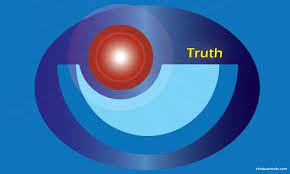A core characteristic of Hinduism is the requirement for Pramana or Proof for any perspective, approach or statement. Pramana can also be seen as a test to determine validity of any proposition. All schools of Hindu philosophy subscribe to the requirement of providing “proof”, although they differ on what is an acceptable means of proof or evidence.
This requirement is a basis of the scientific approach of Hinduism, with the approach of being a seeker of truth, and the cyclic nature of time.
Generally, there are six Pramanas or methods to identify knowledge and truth:
- Perception (“Pratyaksha) – your own direct experience, or empirical evidence
- Inference (“Anumana”) – applying reason to observations (a classic example being “if there is smoke, then there is fire”)
- Testimony (“Shabda”) – The authentic word of experts, given that all of us have limited time
- Analogy (“Upamana”) – Drawing conclusions by comparison – as an example, this method is used extensively in Ayurveda, the Indian system of medicine, to explain rare and more complex diseases
- Circumstantial or Postulation (“Arthapatti”) – as an example, if it is known that a person enters a dark room during the day, it is evident that the room has no windows, and no other source of light.
- Negative Proof (“Anuplabdhi”) – where not perceiving is a proof of absence
Different schools of Hindu philosophy accept some of all of these as means of establishing truth. For example, the Charvaka school only accepts Perception as a valid means of establishing Truth, whereas the philosophy of Yoga accepts Perception, Inference and Testimony as valid proofs.
Buddhism generally accepts only Perception and Inference, whereas Jainism accepts Testimony of experts as well.
These differences apart, all Hindu schools of philosophy are united in expecting some form of evidence for any statement or approach. As a consequence, should later observations bring out new facts, the religion not only supports, but requires, change.
Pratyaksha Pramana or empirical evidence is given the highest status among these and is reinforced through Hindu texts. The Mahabharata explicitly states that in the event of a conflict between direct evidence and scriptural evidence, the former shall prevail. The great philosophers of Hinduism have also reaffirmed this in their writings.
This establishes both the scientific and reformative aspects as intrinsic to Hinduism. This is a defining characteristic of Hindu and Indian philosophy.
